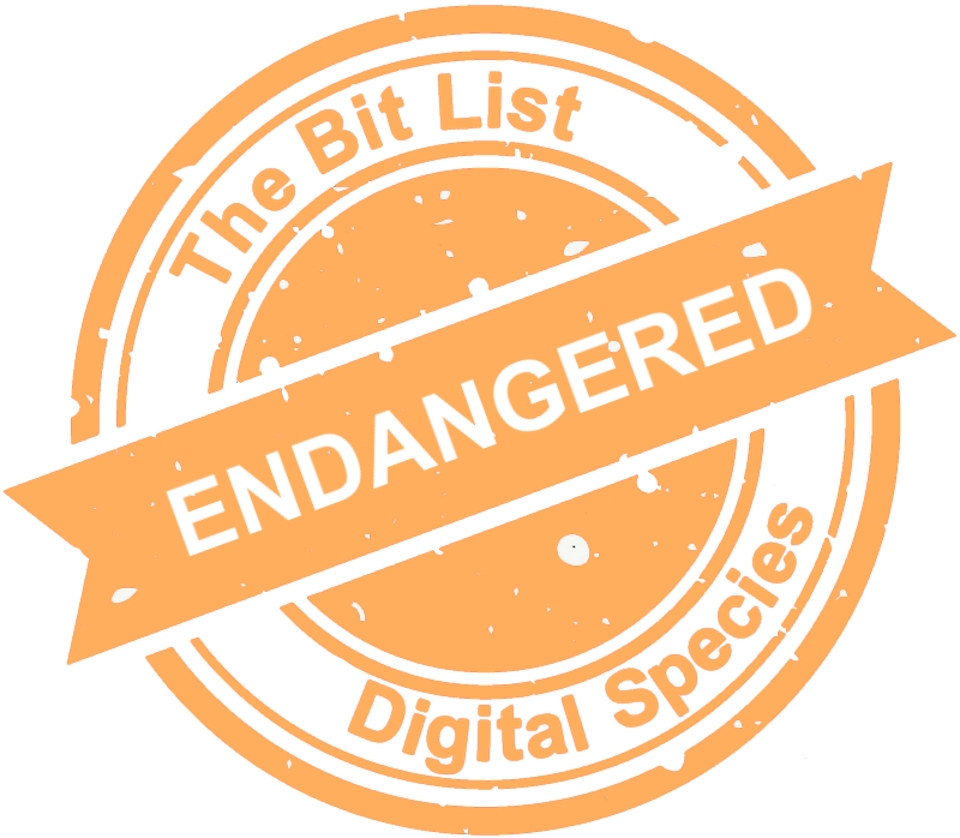Recordings of Video Gameplay Uploaded to Online Platforms
 |
||
|
Recordings of game playing and e-sports that show how games are experienced and played, especially multi-user online games and tournaments. |
||
|
Digital Species: Gaming, Sound and Vision, Social Media, Web |
Trend in 2023:
|
Consensus Decision |
|
Added to List: 2019 |
Trend in 2024:
|
Previously: Endangered |
|
Imminence of Action Action is recommended within three years, detailed assessment within one year. |
Significance of Loss The loss of tools, data or services within this group would impact on people and sectors around the world. |
Effort to Preserve It would require a major effort to prevent or reduce losses in this group, possibly requiring the development of new preservation tools or techniques. |
|
Examples Material uploaded to Amazon Twitch, game channels on YouTube and other playback services. |
||
|
‘Critically Endangered’ in the Presence of Aggravating Conditions Uncertainty over IPR or the presence of orphaned works; lack of offline backup; changing business model of providers; limited recognition of the cultural and historic value of game play; over-dependence on goodwill subsidy of an ad-hoc community; lack of preservation know-how at service providers; dependency on bespoke hardware or interfaces; DMCA takedowns. |
||
|
‘Vulnerable’ in the Presence of Good Practice Offline backup; managed intellectual property rights; players and audiences invested in data. |
||
|
2023 Review This entry was added in 2019 as a subset of an entry made in 2017 for ‘Gaming,’ which the Jury split into four more discrete entries. There are overlaps with Social Media entries, except this category specifically draws attention to gaming and e-sports and therefore is a subset of both. By including as a separate entry, the 2019 Jury encouraged greater consideration of the cultural and historic value that such recordings are likely to acquire as well as the technical and economic challenges to preservation. The content is not particularly distinctive in technical terms, but there are aggravating circumstances, namely an almost complete reliance on commercial third parties (Google/YouTube and Amazon/Twitch) for the infrastructure around video capture and hosting. As the majority of this material is experienced and hosted on user-driven and ephemeral platforms such as YouTube and Twitch, it is less 'collectable' than the actual games and is unlikely to exist in private or public collections. Involves platforms that the digital preservation sector does not have much experience working with, e.g., Twitch. For these reasons, the 2021 trend was towards greater risk. In 2023, whilst the Endangered classification and overall risk remained the same, the Council noted an increased trend towards greater risk due to an increase of copyright strikes on content, especially Nintendo gameplay videos. The 2023 Council also noted this is tied to other entries under the gaming species, especially ‘Shut Down and Discontinued Games’, as gameplay videos might be all that remains of the original experience of some games as well as being used to document the moment a server closed. Additionally, there can be intersecting issues with entries under the social media species, such as ‘Born Digital Photographs and Video shared via Social Media Platforms’ when addressing broader issues surrounding the capture and sharing of video content via a social media platform. |
||
|
2024 Interim Review These risks remain on the same basis as before, with no significant trend towards even greater or reduced risk (‘No change’ to trend). |
||
|
Additional Comments Copyright claims on video content by publishers such as Nintendo also complicate things. One example of major copyright claims affecting content creators has been Nintendo issuing copyright strikes on a Legend of Zelda: Breath of the Wild video due to its demonstration of a fan-made mod and, once the issue had been raised, more copyright strikes were issued on Legend of Zelda: Breath of the Wild videos that did not contain footage of the mod. In other cases, content creators have had to deal with copyright strikes being issued due to the in-game music. The significance of loss here is high because recordings, including commentary, and onscreen interactions with other players, seem likely to be the best way of preserving the experience of playing certain games at certain times. We are familiar with the challenges of preserving video, but we need to think about how established approaches will work in the context of the aggravating circumstances outlined above. There is a degree of urgency associated with working out how (legally and technically) preserving the materials that they hold may be preserved. Important for social context, and from a DP point of view videos should not be too hard, but if we are capturing the experience to inform digital preservation actions and intents, then do not these videos exist in places such as YouTube and wouldn't they be brought in as part of the 'documentary' evidence of DP actions taken on the game or sports that have come into the archive? Case Studies or Examples:
|
||





































































































































